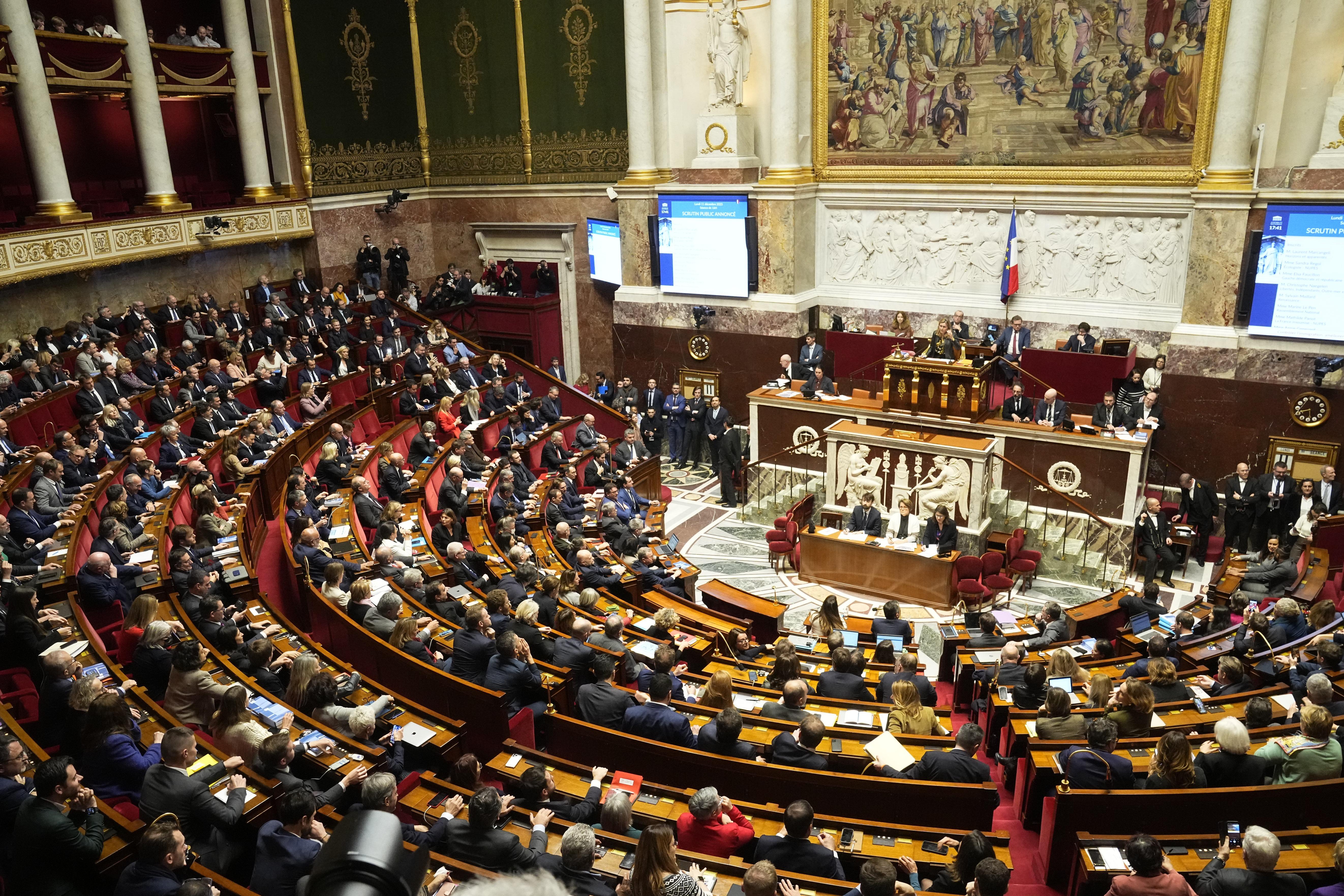 A general view of National Assembly in Paris, France, Dec 11, 2023. (PHOTO / AP)
A general view of National Assembly in Paris, France, Dec 11, 2023. (PHOTO / AP)
PARIS - French President Emmanuel Macron faced cracks within his ruling alliance on Wednesday after parliament passed a toughened immigration bill, leaving him needing to find ways to appease left-leaning members.
The bill, a compromise between Macron's party and the conservative opposition, illustrates a rightward shift in politics in much of Europe as governments try to curb the rise of the far-right by being tougher on immigration.
It also showed the difficulties for Macron of governing without a parliamentary majority, which he lost in the June 2022 election after winning a second presidential mandate.
The bill makes it easier to expel illegal migrants while watering down plans to loosen curbs over residency permits for workers in labor-deprived sectors
The tougher rules - including migration quotas, making it harder for immigrants' children to become French citizens, and delaying migrants' access to welfare benefits - were added to the bill to win the support of right-wing lawmakers for its passage.
The bill makes it easier to expel illegal migrants while watering down plans to loosen curbs over residency permits for workers in labor-deprived sectors.
READ MORE: Italy, UK and Albania discuss irregular immigration
Those conditions caused unease among the centrist president's more left-leaning lawmakers, and dozens either abstained or gave it the thumbs-down in a vote on Tuesday, and there were reports of ministers possibly resigning.
The rebels in Macron's party could further weaken his hold on parliament and complicate the rest of his five-year mandate.
Just six months before European Parliament elections in which immigration will be key, the adoption of the bill could also boost Marine Le Pen who called the rejigged bill "a great ideological victory" for her far-right party.
READ MORE: EU warns countries are off track for 2030 climate goal
Macron was set to defend his new migration law in a TV interview on Wednesday evening, and was also likely to try and move on and appease his camp.
'Move on'
Speaking on France Inter radio, Prime Minister Elisabeth Borne defended the bill, saying it responded to the French people's worries about security and immigration and rejected talk of a crisis in Macron's camp.
The number of immigrants - people living in France but born abroad - stood at 5 percent in 1946, reaching 7.4 percent in 1975 and 8.5 percent in 2010, to just over 10 percent of the population, or 2.5 million people, in 2022. About a third have become French
"We've done our job, we wanted a text with useful measures that our citizens were calling for," she said, adding: "Now let's move on."
Borne said that the government would ask the Constitutional Council to review the adopted bill. This opens the door to the council striking down some of the tougher measures if it deems them unconstitutional.
She denied widespread reports that Health Minister Aurelien Rousseau would have presented his resignation.
Macron will speak on the 1800 GMT "CàVous" political show on France 5 TV, France TV broadcaster said.
READ MORE: Denmark makes arrests on suspicion of attack preparations
He won his two presidential mandates in 2017 and 2022 after voters rallied behind him to bar Le Pen from winning, and left-wing MPs said the rejigged migration bill was a betrayal of promises made to fend off right-wing ideas.
According to statistics office INSEE, the immigration share of France's population has grown steadily over the decades.
The number of immigrants - people living in France but born abroad - stood at 5 percent in 1946, reaching 7.4 percent in 1975 and 8.5 percent in 2010, to just over 10 percent of the population, or 2.5 million people, in 2022. About a third have become French.
Other governments across Europe have also opted for tougher migration policies, and the European Union itself reached an agreement on Wednesday to reshape its migration and asylum rules to try to limit the number of incoming migrants.
Migrant arrivals in the EU are way down from a 2015 peak of over 1 million but have steadily crept up from a 2020 low to 255,000 in the year to November, with over half crossing the Mediterranean from Africa to Italy or Malta.


